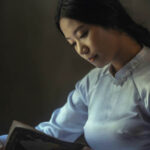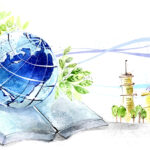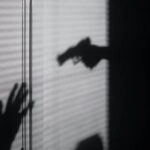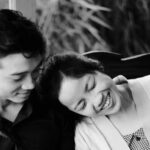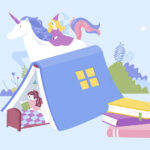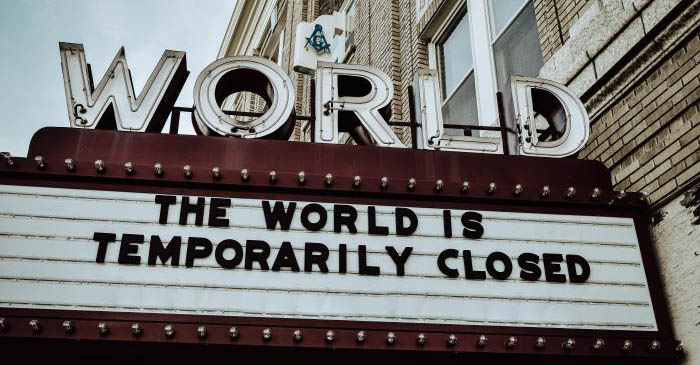
Months of life under quarantine during the COVID-19 pandemic have resulted in all of us approaching limits of different sorts. Maybe you’ve already read all the books that actually interest you and are dreading reading those books that you’ve been meaning to get to but don’t really want to read. Maybe you’ve already watched all of Netflix and Hulu and are somehow reaching the end of the infinite abyss that is YouTube. Oh, the horrors!
Fellow social distancers, consider this list of books by Korean authors as a way to stave off the monsters that loom in the distance. Whether you’re an ethnic studies major or just looking for a good read, this list suggests three different books by Korean authors that can infuse your life with anxious curiosity, compassionate discovery, and perplexing intricacy.
City of Ash and Red by Hye-young Pyun (trans. Sora Kim-Russell)
For those of us who can’t imagine a world any worse than our current one (and wouldn’t mind a trip down that speculative path), Hye-young Pyun’s novel conjures up a dystopian vision of a city facing a deadly virus.
The unnamed protagonist of the novel, simply called “the man,” is a rat exterminator whose job takes him to an unnamed city of an unnamed country where trash is everywhere, the air is nauseating, the people are sick, anxious, and paranoid, and the language is one he doesn’t really know. While the man struggles to survive in his new surroundings, he learns that back home, he has been accused of the murder of his ex-wife, and his past begins to unravel in his new, inhospitable environment.
Pyun is the 2017 Shirley Jackson Award winner for her novel The Hole, and City of Ash and Red was recommended as a “Best Book of 2018” by NPR. A gripping tale that delves into disgust both material and psychological, Pyun’s novel displays virtuosic narrative construction that renders it supremely readable.
With its harsh depictions of violence and a society mired in refuse, City of Ash and Red might not be a novel for everyone. Readers who can stomach the nightmarish, traumatic content will find an expertly crafted story that will grab their attention.
All You Can Ever Know by Nicole Chung
If social distancing has you missing close conversations with empathetic friends and loved ones, the intimate voice that Nicole Chung puts on the page can be a comforting presence.
In her memoir, Chung, a Korean adoptee, grows up in Oregon with white parents in a predominantly white community. As Chung comes of age and navigates the world as an Asian American facing discrimination that her parents struggle to understand, her questions about her identity and her birth family grow more pressing. Now expecting a child of her own and dissatisfied with the pat answer that her parents give her when she asks about her birth parents, Chung embarks on a quest to learn about her birth family, uncovering both pain and love.
Chung’s memoir has received glowing reviews, been heralded as a “best book of the year” by numerous major publications, and garnered nominations and finalist statuses for multiple literary awards. The combination of Chung’s remarkable capacity to see things from others’ perspectives, her honest handling of difficult topics like race and kinship, and the warmth that emanates from her writing makes for a memoir that invites the reader to think about their own connections in the world.
All You Can Ever Know would be a great book for readers who would like to delve deeper into how we investigate our identities and what we might find when we do so.
Dictee by Theresa Hak Kyung Cha
If quarantine-life has left you with ample time to read, reread, mull things over, and play with ideas, the dense threads of languages, histories, and symbols interwoven into Theresa Hak Kyung Cha’s work can provide you with plenty of material to contemplate.
Dictee is divided into nine sections named after the nine Greek muses, and that’s just about the simplest description one can muster of any concrete structure. In terms of genre, Dictee is a mosaic, drawing upon the novel, poetry, biography, the diary, film, and even language-learning exercises. Cha writes in English and French, often breaking apart and re-forming sentences and words. She includes photographs, diagrams, Chinese calligraphy, and pieces of handwritten notes. Cha engages the stories of women ranging from Joan of Arc to Yu Guan Soon, from her mother to herself, invoking the historical and symbolic contexts surrounding them.
Dictee has been a landmark source of inspiration for artists and critics since its publication in 1982. Perhaps because its formal innovations and radical poetic possibilities don’t offer the reader any stable ground of meaning, Dictee has generated waves of varying interpretations up to the present—engagements that continue to contend with the text as well as the author’s life and tragic death.
Dictee would interest readers who are looking for an intellectual challenge and would enjoy spending time meditating on Cha’s aesthetic innovations.




